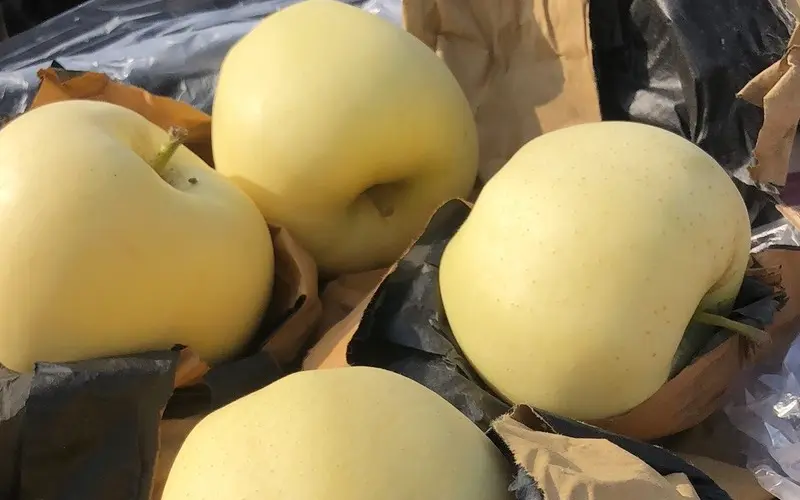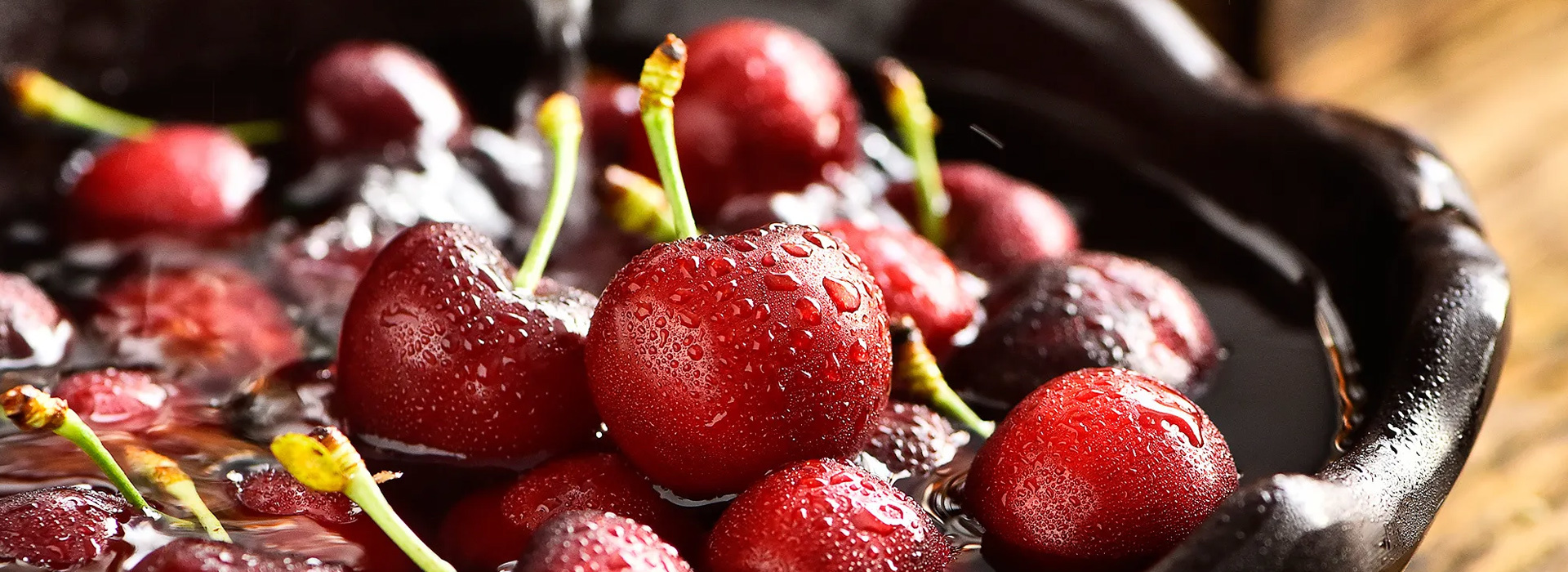How to choose high-quality Jinshuai apples?
Release date:
2025-09-12
Mature, high-quality Golden Delicious apples feature a uniformly golden-yellow skin tone—neither greenish-yellow nor dull yellow. Some fruits may exhibit a natural, delicate blush of pale red across part of the surface (a normal phenomenon influenced by sunlight), with the reddish hue evenly distributed and free from uneven patches that appear "deep in some areas and faint in others."

To select high-quality Jinshuai apples, you can assess them based on four key dimensions: appearance, texture, aroma, and weight. Combine this evaluation with the variety's specific characteristics—such as its golden-yellow color when ripe and tendency to soften easily—to carry out targeted selection. Here’s the detailed method:
1. Examine the Appearance: Focus on "Maturity + No Damage"
The appearance of Jinshuai apples directly reflects their ripeness and freshness, with a focus on the following 3 points:
Color: Golden yellow with a reddish hue is the best.
Mature, high-quality Golden Delicious apples feature a uniformly golden-yellow skin tone—neither greenish-yellow nor dull yellow. Some fruits may display a natural, delicate blush of pale red across part of the surface (a normal phenomenon influenced by sunlight), with the blush evenly distributed and free from uneven patches that appear "deep in some areas and faint in others."
If the peel is predominantly greenish, it indicates insufficient ripeness, resulting in a tart taste and firmer flesh. If the color appears dull and lacks shine, it may mean the fruit has been stored for too long, leading to a loss of freshness.
Epidermis: Smooth, without spots or damage
High-quality Jinshuai apples have thin, smooth skin, free from noticeable brown spots, insect marks, scratches, or dents—
If there are small spots (not natural fruit dots), they could be remnants of pests or diseases, or may have deteriorated due to moisture during storage.
If there are dents or scratches, bacteria can easily breed, and the fruit flesh may already be rotten—especially in the dented areas where dirt tends to accumulate.
Fruit shape: neat and plump, free from deformities
The typical fruit shape of Jinshuai apples is conical or ovoid. When selecting apples, prioritize those with a neat, well-proportioned shape and a uniformly plump appearance—avoid "crooked melons and cracked jujubes" (such as fruits that are unevenly sized—large on one side and small on the other—or have excessively deep indentations at the top)—as deformed fruits often result from insufficient nutrients during growth or environmental stress, typically leading to poorer taste and lower sweetness.
II. Texture: Firm yet slightly elastic—neither soft nor sticky
Gently press the surface of the apple with the palm of your hand (avoid using your nails to prevent damage), and feel the texture:
Premium condition: When pressed, the fruit flesh feels slightly firm and elastic, quickly springing back once released; the skin remains dry and non-sticky to the touch.
Avoid two situations:
① When pressed, if it feels "hard and rigid" with no elasticity, it indicates low maturity, resulting in a firm, crisp texture and a strong tartness in the flesh.
② When pressed, the fruit becomes noticeably softer and indented but fails to spring back, or its skin feels sticky—this indicates overripeness (or even the onset of decay). In such cases, the flesh may become mealy, lacking juicy sweetness, and completely lose the crisp, refreshing flavor characteristic of Jinshuai pears.
3. Smell the aroma: It has a natural fruity fragrance, with no off-odors.
Hold the apple close to your nose and gently sniff—high-quality Golden Delicious apples will release a subtle, fresh fruity aroma (a blend reminiscent of "sweetness + fruitiness"), with a natural scent that isn’t overpowering.
If you can't smell the fragrance, it might not be ripe enough; but if you detect sour, musty, or other unusual odors (such as an alcohol-like scent), it means the apple has gone bad or hasn’t been stored properly—and you should definitely avoid picking it.
4. Check the weight: For the same size, the heavier one is juicier.
Given apples of similar shape and size, gently weigh them in your hand:
High-quality Jinshuai apples feel "heavier" because their flesh is plump and juicy.
If the fruit feels unusually light, it may indicate that the flesh is hollow (due to insufficient water during growth) or has lost too much moisture during storage, resulting in a dry, fibrous texture with little juice.
V. Special Technique: Examine the Stem to Assess Freshness
The fruit stem (the part of the apple where it attaches to the branch) is a "hidden indicator" for assessing freshness:
Fresh, high-quality Jinshuai apples have green or pale green stems that are firm and securely attached—no signs of dryness or browning.
If the stem has turned dry and black, and falls off easily when pulled, it indicates that the fruit was stored for too long after harvesting, significantly reducing its freshness—and the flesh may have already lost both moisture and sweetness.
Summary: Four Key Words for Selecting "Premium Golden Champion"
Color (golden yellow with a reddish blush), texture (firm yet slightly resilient), aroma (natural fruity scent), and weight (heavier for its size)—as long as it meets these four criteria, you’re likely to find a Golden Delicious apple that’s delightfully sweet, juicy, and remarkably fresh. Whether enjoyed straight off the tree, simmered in water, or pureed into applesauce, this variety is perfectly versatile.
Tags:
Share to



